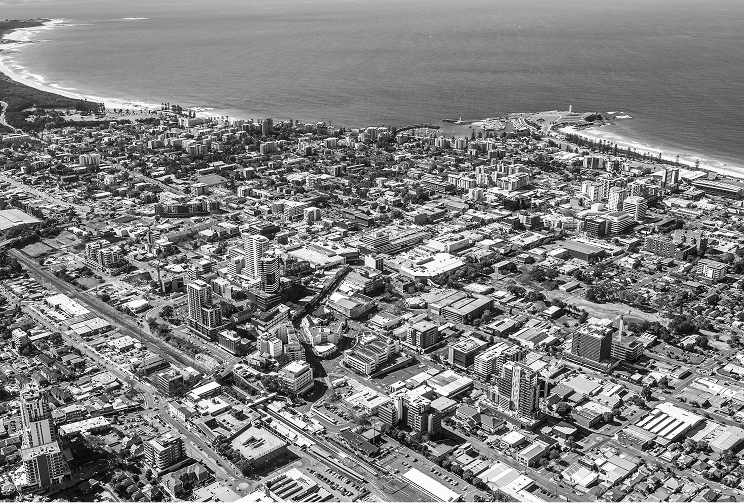Why invest with us
Capital gain from long-term land banking
Monthly distributions*
Non-discretionary tenants
Significant residential development upside~
Inflation linked income
Australian tax concessions for rental income and capital gains tax^
*Dividend rates are subject to approval by the project SPV board. For detailed information on dividend policies, please refer to the specific investment project details and associated constitutional agreements.
~The potential to incorporate residential properties into a project is contingent on securing the necessary government planning approvals, which is inherently uncertain and may require significant time. This underscores the importance of positive cash flow during the holding period and a consensus on a long-term holding horizon. JY Group typically avoids acquiring properties with existing residential planning approvals, as these often carry a significant price premium.
^Investors are advised to seek independent Australian tax advice.
JY Group believes that the core principle of investment through navigating the "impossible triangle" of lower risk, higher returns and great liquidity
Through a long-term holding strategy of over 10 years for strategically acquired assets, JY Group is committed to maximising returns and managing risk, whilst acknowledging a trade-off in liquidity.
Strong Rent
Quality non-discretionary tenants
Large community shopping centres in Australia typically serve a five-kilometre radius, providing essential goods and services for residents’ daily needs. This creates a strong, resilient customer base that is less susceptible to replacement by e-commerce. Additionally, high labour costs and significant e-commerce delivery expenses in Australia reinforce residents’ reliance on local shopping centres.
The tenant mix of large community shopping centers usually includes:
- Anchor tenants: large supermarkets and discount stores
- Fresh food tenants: greengrocers, butchers, seafood, bakeries, and more
- Medical services tenants: GPs, dentists, imaging centres, hearing specialists, and other medical professionals
- Personal services tenants: child care, massage therapy, skincare, and wellness services
- Government services tenants: federal welfare agencies, state service centres, and related offices
- Food and beverage tenants: cafés, restaurants, takeaway options, and food courts
Rental growth to hedge against inflation
High-quality, large community shopping centres hold a dominant position within their catchment areas, providing them with strong bargaining power over tenants. These properties typically include annual rent escalation clauses, allowing for rent increases of up to 4-5% per year.
In a high-inflation environment, rising labour and material costs make new shopping centre developments less viable. As a result, existing shopping centres may be valued below the cost of new construction, significantly reducing supplyside competition for these established assets.
Finally, in a high-inflation environment, the real value of bank loan principal used to purchase shopping centres may effectively ‘depreciate,’ potentially enhancing investment returns in real terms.
allowing for rent increases of up to
4-5%
per year

The top five tenants of JY Group’s shopping centre properties (in terms of rental income) are:






Strong Capital Appreciation
Long-term land holding for capital appreciation
Research indicates that, driven by population growth and robust infrastructure, land value in major Australian cities has demonstrated strong long-term appreciation.
To enhance customer convenience, large community shopping centres typically provide extensive outdoor parking, allowing them to occupy larger land areas with lower floor area ratios. As a result, these properties have a more pronounced land banking effect compared to office buildings, warehouses, and hotels.
On the other hand, undeveloped land designated solely for development does not generate rental income but incurs signficant holding costs, including government land taxes, financing, and management expenses, which can create cash flow pressures for owners. In contrast, large community shopping centres offer stable rental income, making them a more viable option for long-term holding.
Residential development upside
Large community shopping centres are typically situated at the heart of communities, close to public transport, schools, and hospitals, making them ideal sites for future high-rise apartments or large mixed-use developments. Additionally, the growth of residential spaces in the surrounding area attracts more people, providing a high-quality, stable customer base for these centres, creating a mutually beneficial dynamic.
While each property faces unique planning challenges, numerous precedents exist in Australia of shopping centres being converted or expanded into residential and mixed-use developments. Several shopping centres within JY Group’s portfolio have already received planning approvals for the addition of hundreds of residential units, with the potential for thousands more in the future, paving the way for enhanced investment returns.
Our strategy involves making a modest investment to complete “desk-top” land use planning and secure initial approvals (such as height and Floor Space Ratio restrictions). Once these are in place, we transfer the development portion of the project to major developers through sale or equity investment, while retaining ownership of the shopping centre component to generate rental income.
Our Properties